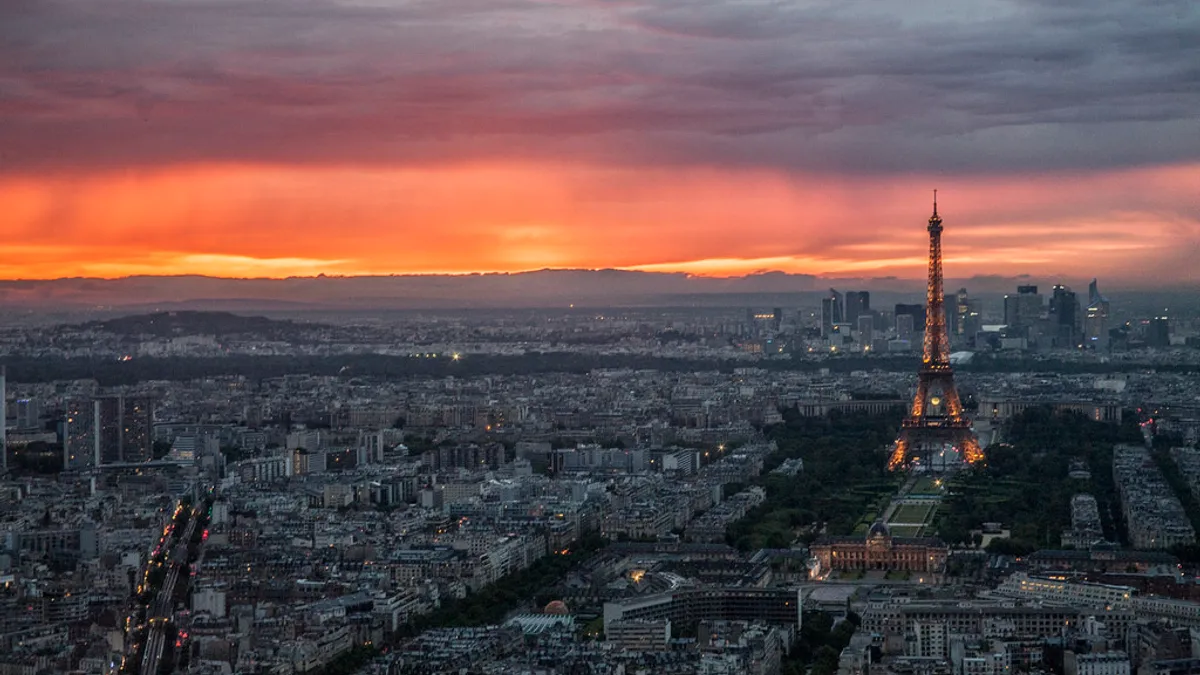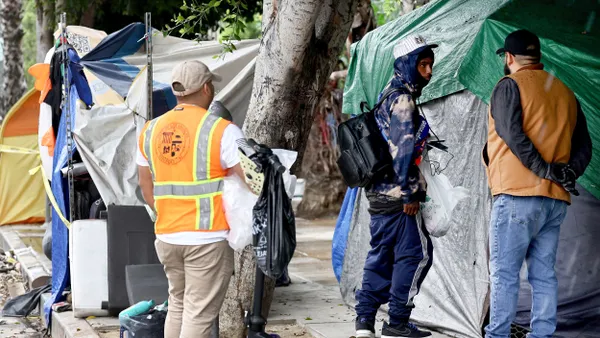Dive Brief:
- A dozen states and Puerto Rico have formed the U.S. Climate Alliance and committed to reducing emissions 26% or 28% from 2005 levels, while meeting or exceeding the targets of the Obama administration's Clean Power Plan.
- Led by Washington, New York and California, the parties have committed to upholding their end of the United Nations Paris climate accord, which President Trump announced last week that the United States would abandon.
- A wide range of business interests, from tech companies to fossil fuel producers also indicated their support for the agreement before Trump's announcement. Several cities have also indicated they will increase their clean energy goals in support of climate efforts, and mayors representing more than 50 million residents are also pledging efforts to combat climate change.
Dive Insight:
President Trump's decision to leave the Paris accord has been widely panned by world leaders and clean energy advocates, and now state leaders are voicing their support for the agreement as well.
Joining the three states which formed the U.S. Climate Alliance are: Connecticut, Delaware, Hawaii, Massachusetts, Minnesota, Oregon, Puerto Rico, Rhode Island, Vermont and Virginia. In addition, more than 200 mayors have committed to the goals of the Paris accord. The CEOs of Tesla and Disney pulled out of Trump’s executive council following the decision.
"Those of us who understand science and feel the urgency of protecting our children's air and water are as united as ever in confronting one of the greatest challenges of our lifetime,” Washington Gov. Jay Inslee said in a statement. "Our collective efforts to act on climate will ensure we maintain the United State's commitment to curb carbon pollution while advancing a clean energy economy."
Washington, New York and California in particular have enacted vigorous carbon and renewable energy mandates. Washington state is also embroiled in a years-long debate over implementing a carbon tax. And the California Senate passed a measure to mandate 100% renewable energy by 2045 in the wake up Trump's decision.
But the movement isn't merely confined to states; cities are also taking action.
Mayors supporting the climate accord represent 56 million residents of Boston, Los Angeles, Washington, D.C., New York City, San Francisco, and many other cities large and small. Also signing on were Pleasant Ridge, Michigan., Columbia, South Carolina, Blacksburg, Virginia, and Bloomington, Indiana.
Rhodium Group analyst Trevor Houser compiled a map of the 12 states and 211 cities committed to the accord as of June 5:
Here's a map of the 12 states, 1 territory and 211 cities committed to the Paris Agreement targets (as of 5pm EDT). 125 million people. pic.twitter.com/YfRexyWvbi
— Trevor Houser (@TrevorGHouser) June 5, 2017
Signed by 195 nations at the end of 2015, Trump said the agreement is a "bad deal for Americans" that "disadvantages the United States at the exclusive advantage of other countries." The accord was agreed to by President Obama, but was not sent to the Senate for ratification as a treaty. The agreement aimed to limit global warming to 2°C this century, translating into an 80% economywide decarbonization for the U.S. by 2050.
The U.S. cannot exit the agreement until 2019, which technically allows time for the Trump administration to negotiate a "better deal," if the President follows through on his promise. But the UNFCCC shortly after the speech said the deal “cannot be renegotiated at the request of a single party.” And the leaders of Germany, France and Italy already said the Paris accord will not be renegotiated.













